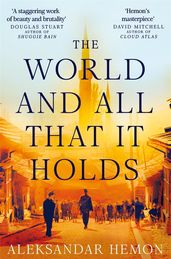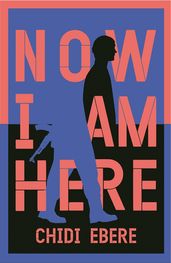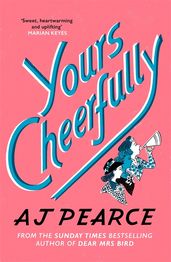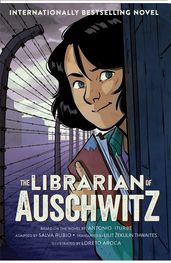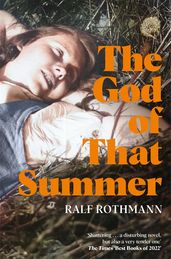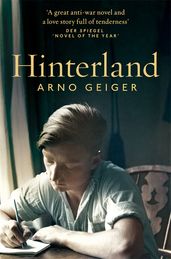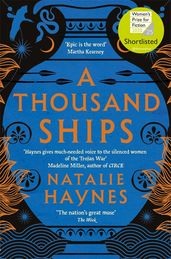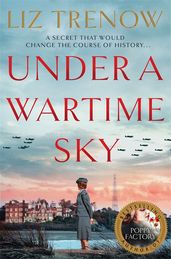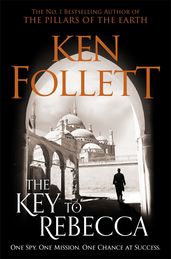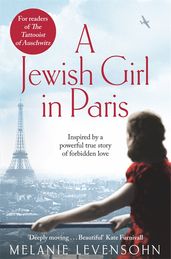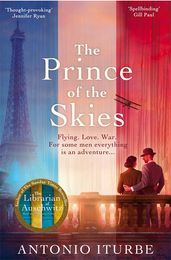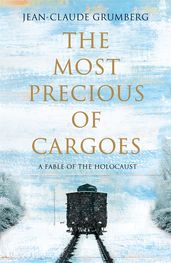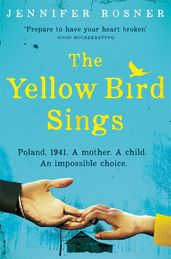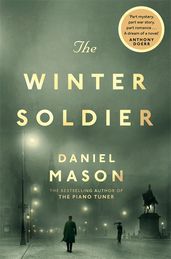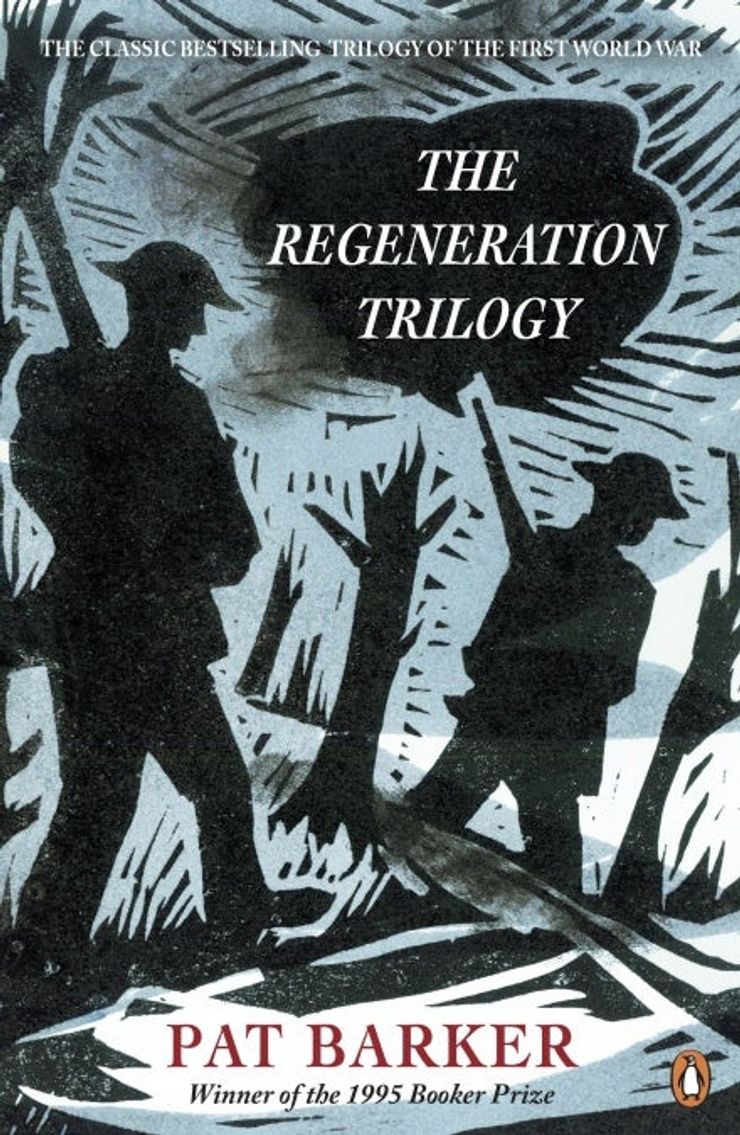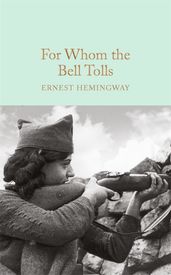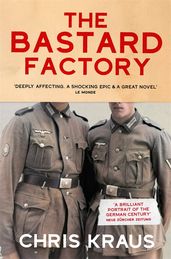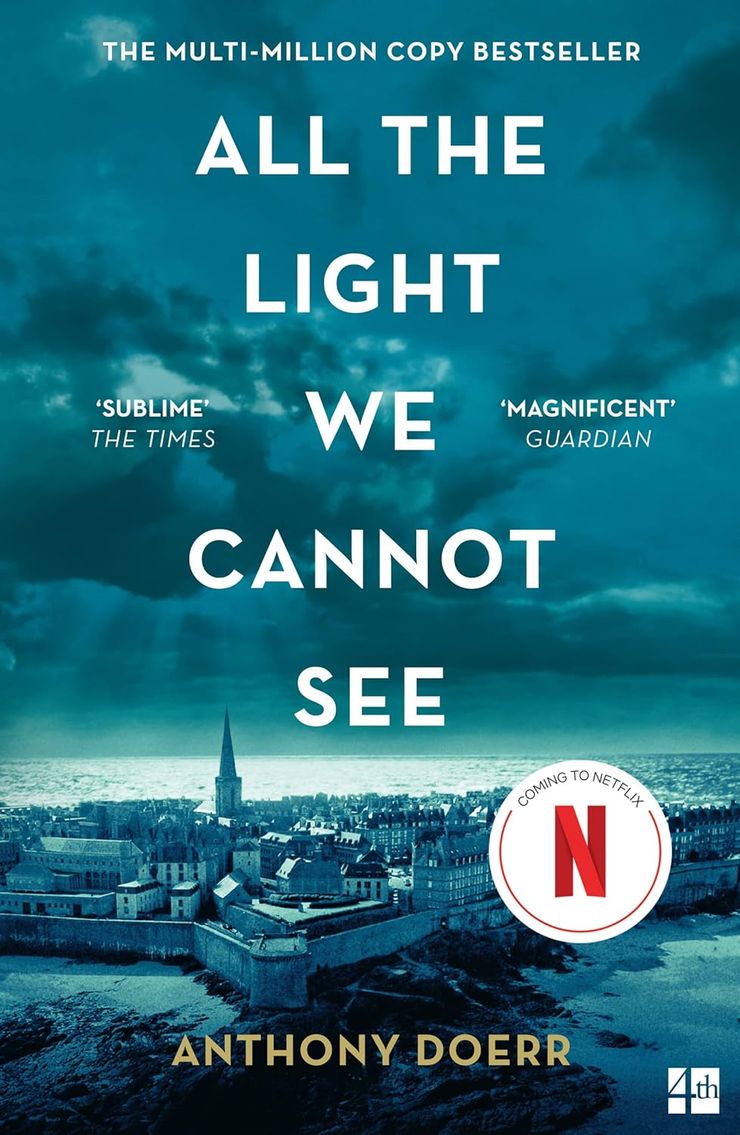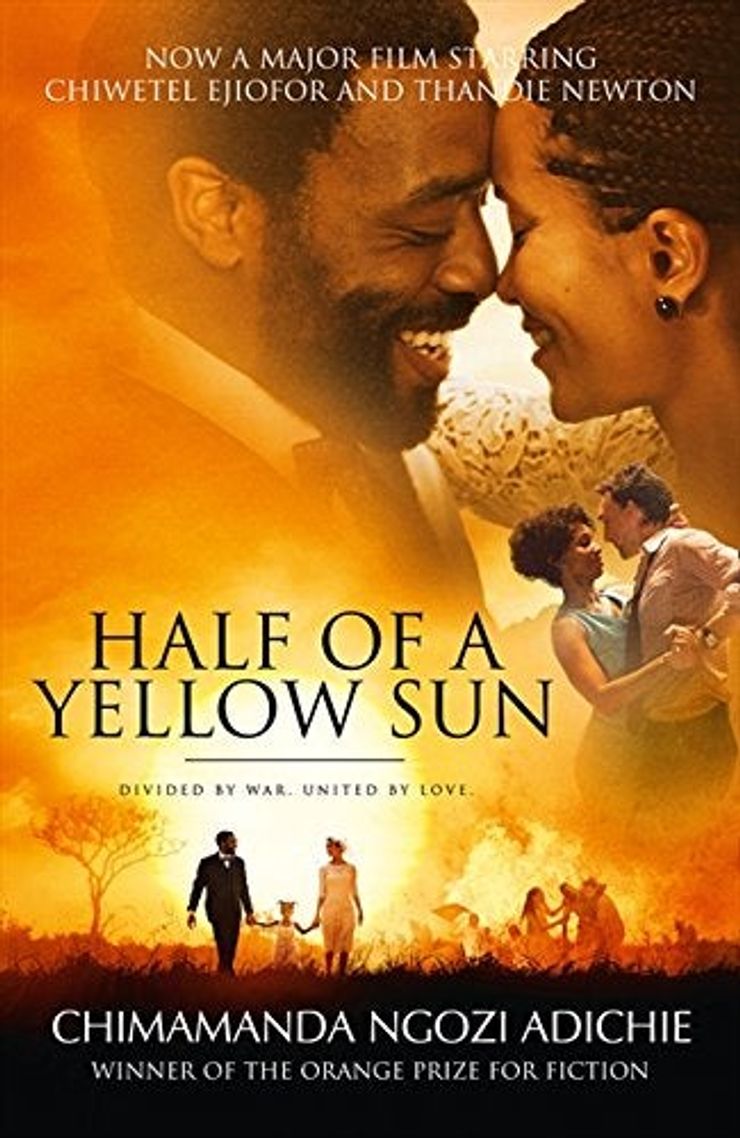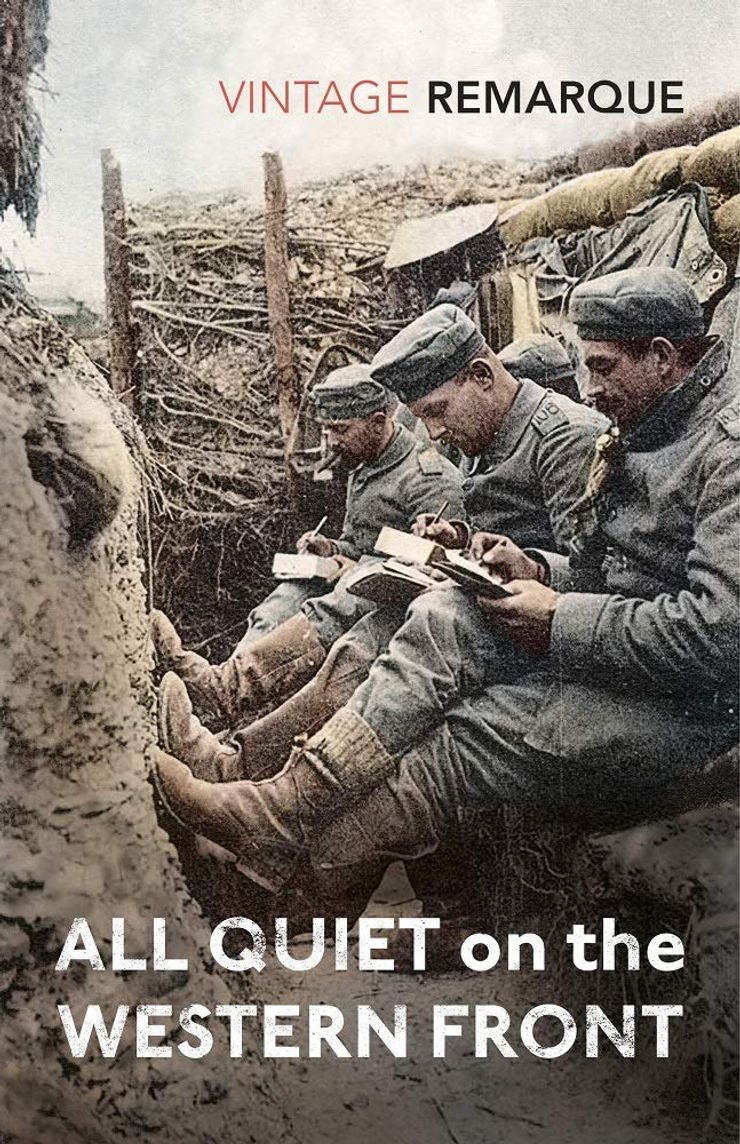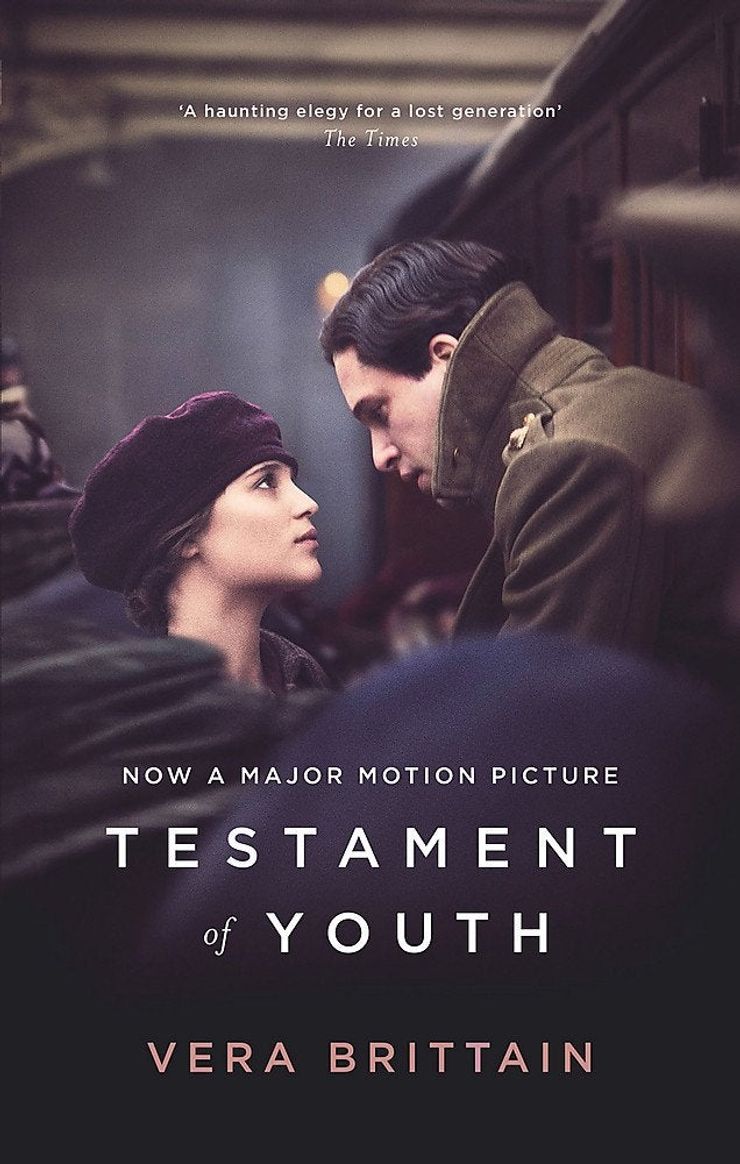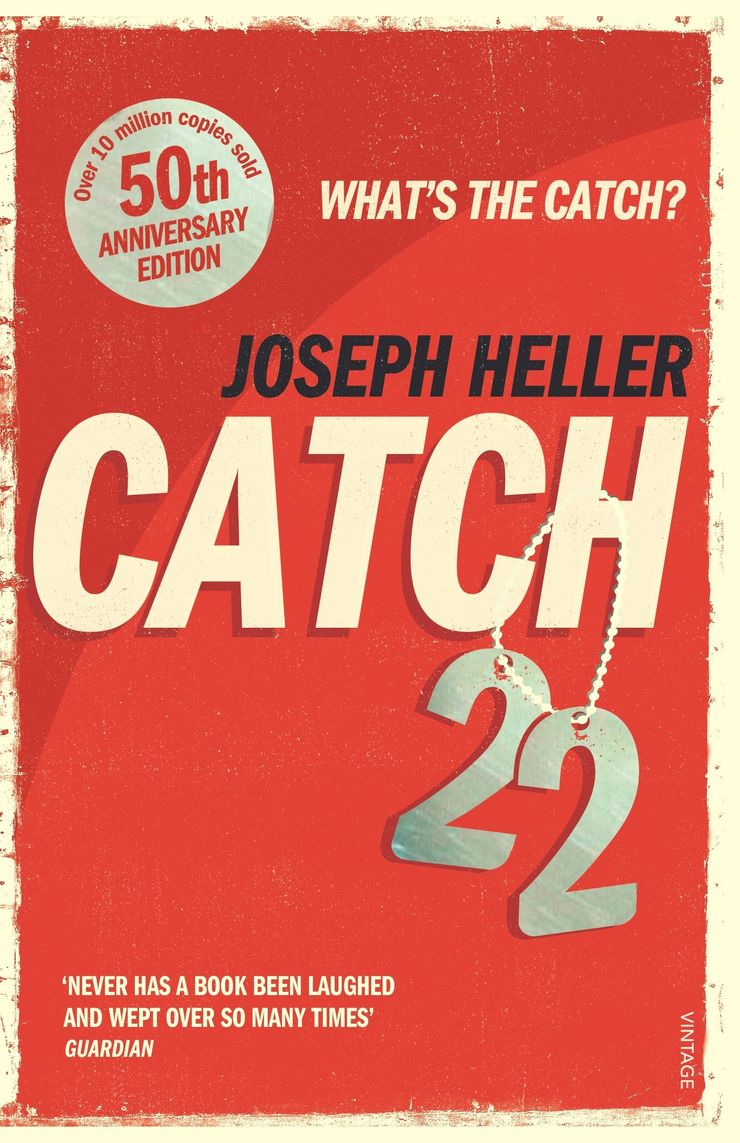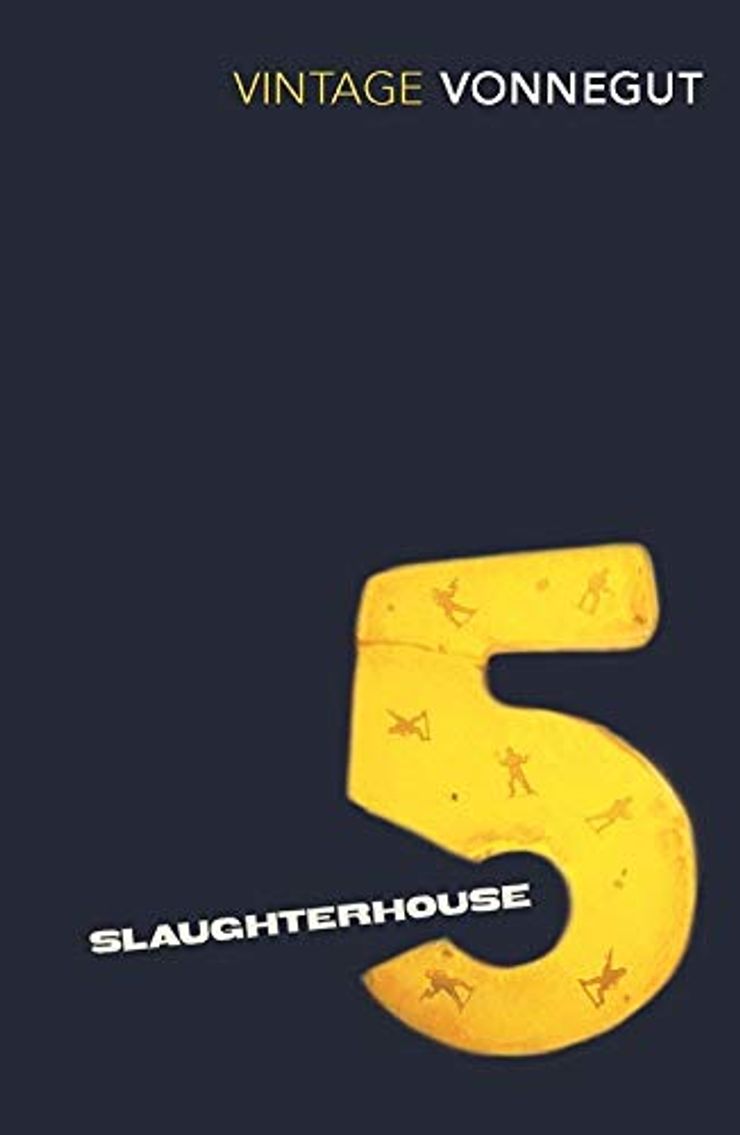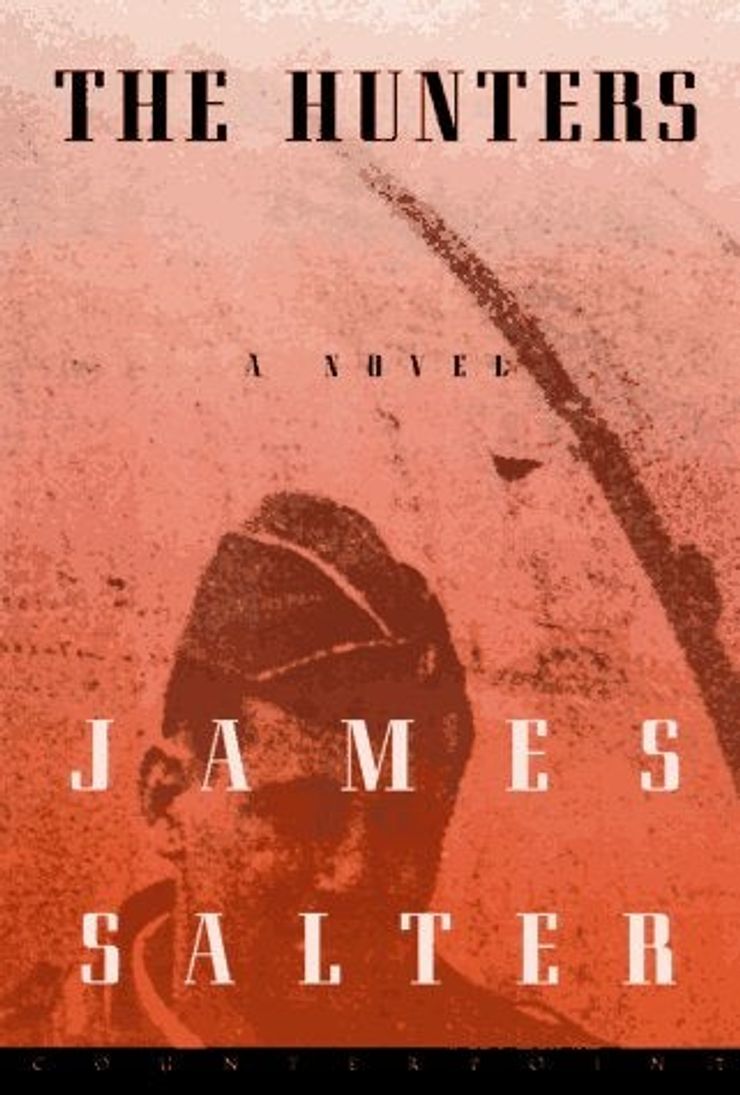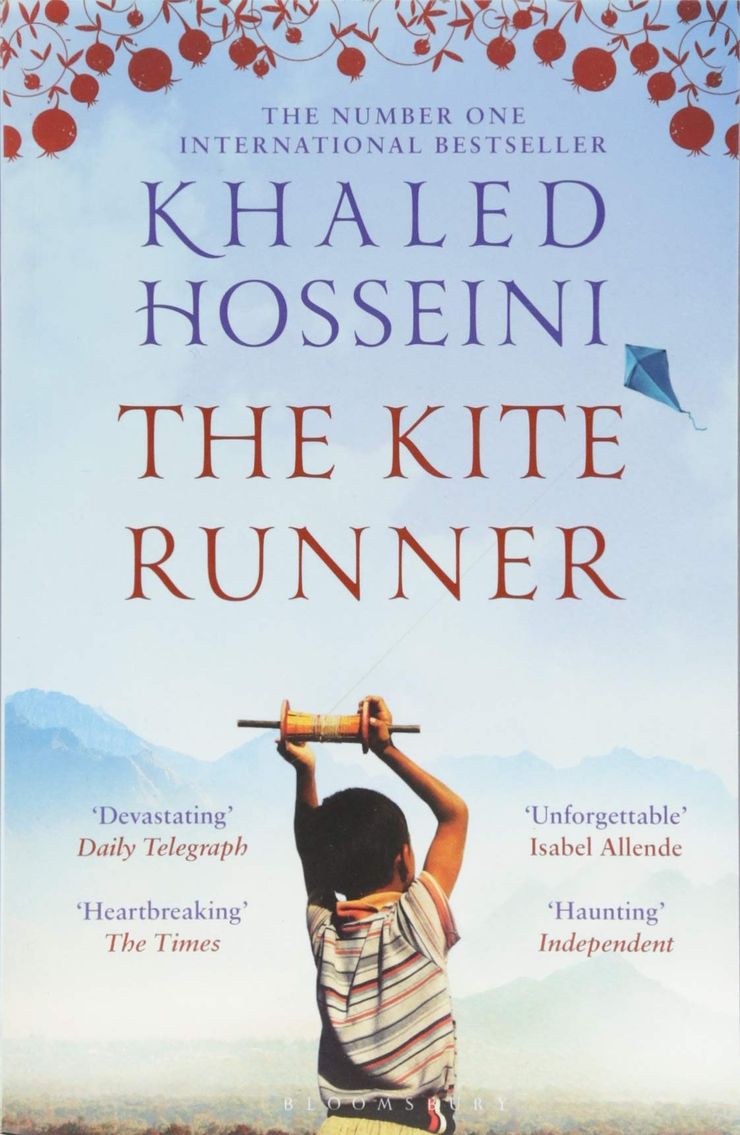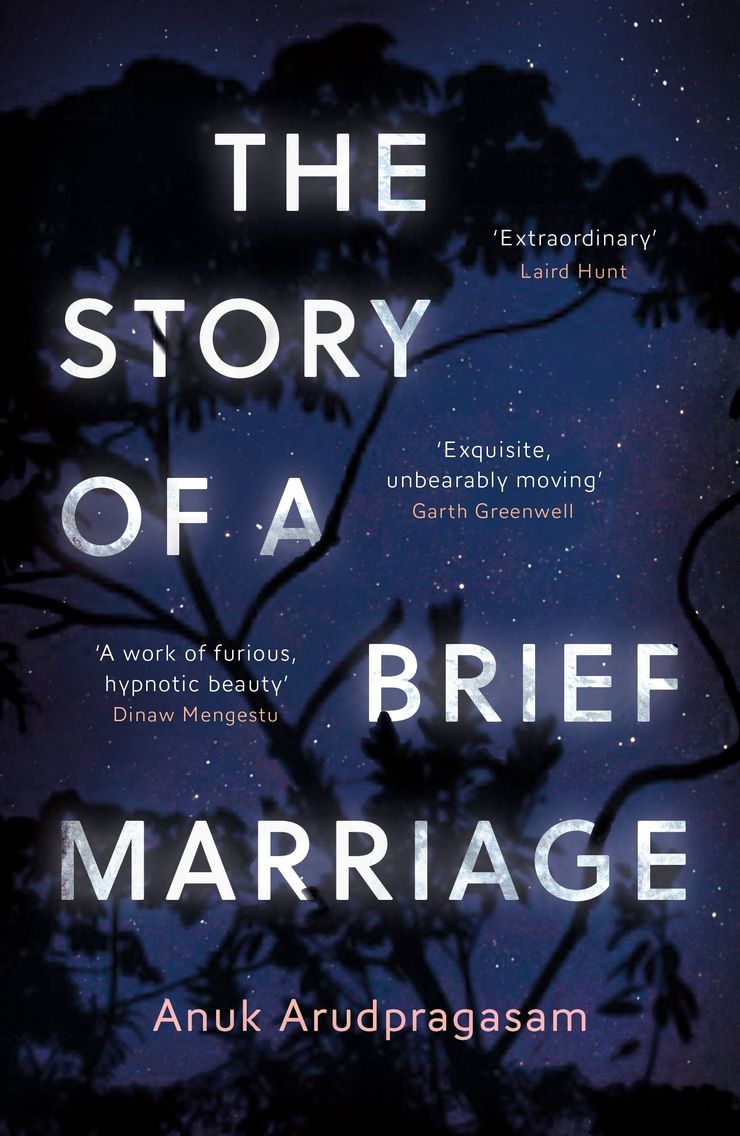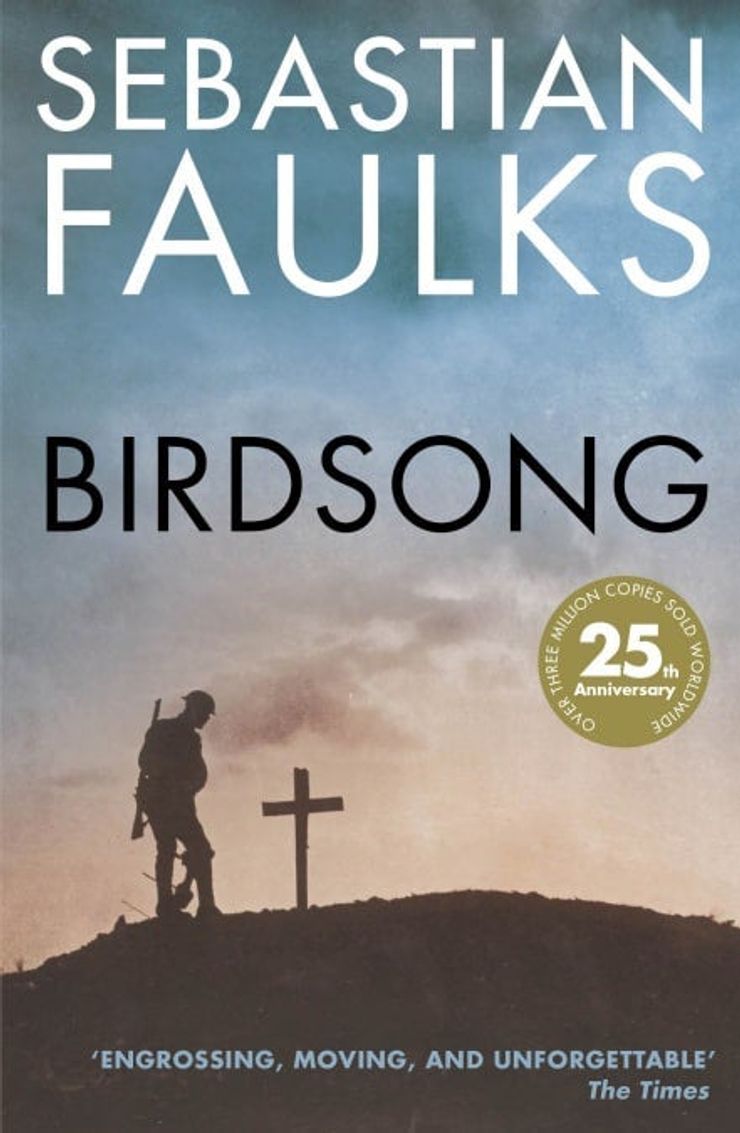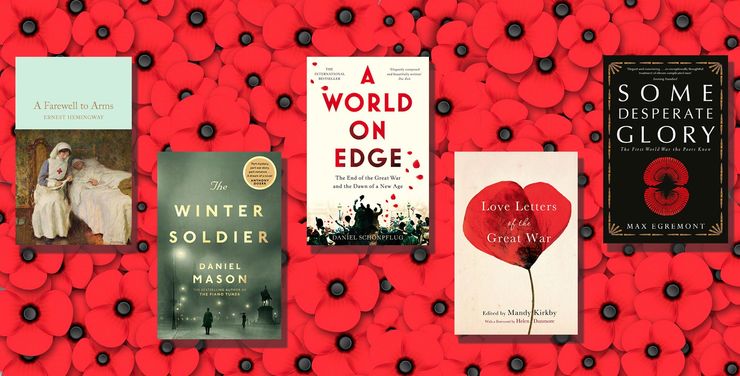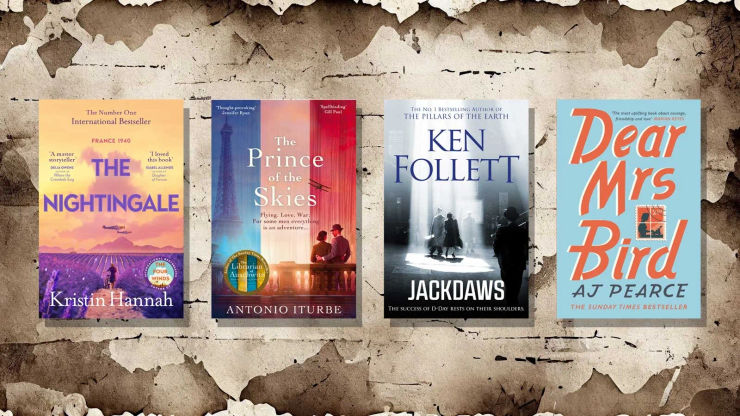30 of the best war novels of all time
Here we share a collection of some of the best war books ever written, spanning the World Wars to the Nigerian Civil War and Korean War.
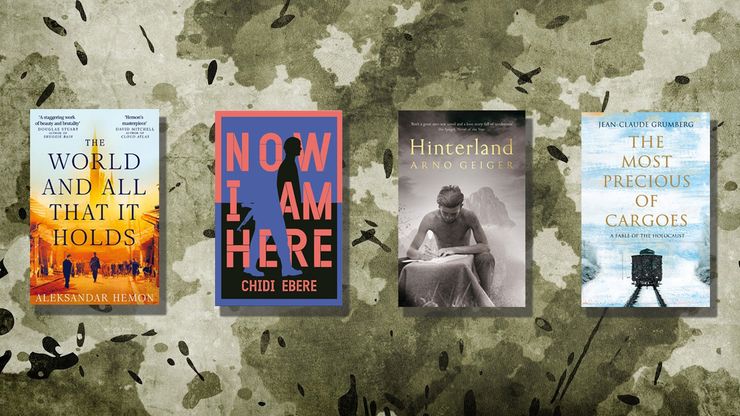
Few events have such a profound and devastating impact on society and individuals as war. Authors have drawn inspiration from conflicts throughout history, using fiction as a powerful means to share, honour and learn from the experiences of those who were there. Here, we share our edit of the best war novels.
For more inspiration, discover our edit of the best historical fiction books.
The World and All That It Holds
by Aleksandar Hemon
Rafael Pinto's life hasn't quite turned out as he expected. But he is, on the whole, happy. He spends his time crushing herbs at a pharmacy, a far cry from his poetry-filled student days in libertine Vienna. And then the world explodes. In the trenches in Galicia, fantasies fall flat. War devours all that they have known, and the only thing Pinto has to live for are the attentions of fellow soldier, Osman. Together, Pinto and Osman will escape the trenches and find themselves entangled with spies and Bolsheviks. As they travel all the way to Shanghai, it is Pinto’s love for Osman that will truly survive.
Now I Am Here
by Chidi Ebere
About to make his last stand, a soldier facing certain death at the hands of the enemy writes home to explain how he ended up there, a gentle man gradually transformed into a war criminal, committing acts he wouldn’t have thought himself capable of. However, this book goes beyond the individual story of our narrator, to explore the effects of war on societies as a whole. A profound reflection on how good people can do terrible things precipitated by circumstances and the violence of war, this is a brave, unflinching and thought-provoking debut.
Yours Cheerfully
by AJ Pearce
Charming, feel-good and packed with 'Blitz-spirit', Yours Cheerfully transports us to Fleet Street in the Second World War and into the world of plucky journalist Emmeline Lake. While the war may be ever-present, for Emmy, things are looking up with a promotion at Women’s Friend and her best friend Bunty at her side. When the Ministry of Information asks her to help recruit female workers to support the war effort, Emmy is happy to oblige and do her bit. That is until a chance meeting with a stranger stops her in her tracks, and she’s faced with a dilemma only she can solve.
The Women
by Kristin Hannah
Frankie McGrath, a nursing student in 1965 California, has her world transformed when she's told "women can be heroes, too." Joining the Army Nurses Corps to follow her brother to Vietnam, Frankie faces the harsh realities of war and its aftermath. Amidst chaos and heartbreak, she finds strength in female friendship and learns the value of sacrifice and commitment. This emotionally charged novel illuminates the often-forgotten stories of women who bravely served their country. With a memorable heroine, searing insights, and lyrical beauty, The Women is a poignant tale of courage.
The Librarian of Auschwitz
by Antonio Iturbe
Based on a true story, The Librarian of Auschwitz is a beautifully illustrated graphic novel about fourteen-year-old Dita, the custodian of the world’s smallest and most powerful library. Entrusted with the responsibility of keeping the libraries’ eight tomes safe, Dita knows that she is putting herself in danger. But she also knows the power of books is essential to help her and her fellow prisoners maintain hope during the darkest of times. A story of courage and the will to survive, The Librarian of Auschwitz is the perfect next read for fans of The Tattooist of Auschwitz and The Book Thief.
The God of that Summer
by Ralf Rothmann
While Luisa, a young girl growing up in rural Germany during World War Two, has managed to escape the horrors of city bombing, the war has not left her unscathed. Unafraid of the realities of life and death, Luisa keeps her head down and supports her family until, one day, an incident changes her forever. A harrowing tale of the costs of war for those not on the front line, The God of that Summer is a masterful and poignant story set in Germany during the final throes of the Second World War.
Hinterland
by Arno Geiger
A poignant novel about the impact of war on everyday people and a bestseller in the author’s native Germany, Hinterland follows the story of Veit Kolbe, a young German soldier recovering from his war wounds amongst the residents of Mondsee, a village near Salzburg. Seemingly sheltered from the horrors of war, Veit enjoys an almost normal life in the town and even begins to fall in love. But everything changes once his injuries are healed, with his idyllic existence interrupted as he’s called up to serve his country and face his fate again.
A Thousand Ships
by Natalie Haynes
Often missing from history’s greatest war stories, in A Thousand Ships Natalie Haynes trains her lens on the women at the heart of the story of the Trojan War. As women wake to find their city aflame as Troy falls to the Greeks, their fates lie in the hands of men they do not know. Starring goddesses and princesses whose tales have never been told, A Thousand Ships breathes new life into a pinnacle moment in classical history and is perfect for readers who loved Madeline Miller’s Circe.
Under a Wartime Sky
by Liz Trenow
Based on the stories of the actual war heroes of England’s Bawdsey Manor, Under a Wartime Sky follows the brightest minds in Britain as they work on top-secret inventions that will help Britain and the Allies win the war. A tale of hope, courage and the ordinary people that did their bit for the war effort, this is the perfect poignant and hopeful story for fans of Kate Furnivall and historical fiction.
The Key to Rebecca
by Ken Follett
When Alex Wolff, a ruthless Nazi spy obsessed with success, arrives in Cairo in 1942, he has one focus––to intercept the Allies’ plans and relay them to his bosses in Berlin. With the fate of North Africa handing in the balance, British intelligence officer Major William Vandam must hunt down the spy and stop Britain from losing valuable ground. A wartime tale from one of the world’s greatest storytellers, The Key to Rebecca is a cat-and-mouse story of espionage, strategy and secrets set in North Africa during the Second World War.
A Jewish Girl in Paris
by Melanie Levensohn
When Judith, a young Jewish girl, meets the wealthy son of a Nazi sympathiser, they know that they can never be together – so the young couple hatches a plan to leave occupied Paris. That is until Judith disappears without a trace. A tale of forbidden love set against the backdrop of the Second World War, A Jewish Girl in Paris is a story of romance and of the life-changing impact of family secrets.
The Prince of the Skies
by Antonio Iturbe
From the bestselling author of The Librarian of Auschwitz, Antonio Iturbe, comes an incredible novel based on the real life of Anthoine de Saint Exupéry and his mysterious death. Together with friends Jean and Henri, Anthoine pioneered new mail routes across the globe and changed aviation forever. At the same time, Anthoine began work on The Little Prince, a children's story that would go on to reach millions of readers around the world – despite the looming shadow of the Second World War. The Prince of the Skies is a tale of love and companionship, war and heroism, and the power of the written word.
The Most Precious of Cargoes
by Jean-Claude Grumberg
Told with a fairytale-like lyricism, this is a moving fable of family and redemption set against the horrors of the Holocaust. A poor woodcutter and his wife living in a forest pray they will be blessed with a child. Meanwhile, Jewish man rides on a train with his wife and twin babies. When his wife no longer has enough milk to feed them both, in desperation he throws his daughter into the forest, hoping that she’ll be saved. Luckily, the woodcutter’s wife finds the baby she takes her home, though she knows this act of kindness may lead to her death. This moving tale is a testament to our capacity for kindness in even the darkest times.
Pippo and Clara
by Diana Rosie
It’s 1938, Mussolini is in power in Italy and war is on the horizon. Pippo and Clara are brother and sister, newly arrived in an unspecified city with their family. When their mother goes missing one morning they both go in search of her, with Clara turning right and Pippo left. As a result of their choices, the children’s lives will be changed forever. This is a moving war novel about a country torn apart and two siblings divided by fate.
The Yellow Bird Sings
by Jennifer Rosner
In Poland, 1941, Róza and her five-year-old daughter, Shira, spend their days and nights hiding in a farmer's barn after escaping being rounded up with the other Jews in their town. Róza tells her daughter stories of a yellow bird, the only one who can sing the melodies Shira composes in her head. Róza would do anything to keep her daughter safe, but eventualy she is faced with an impossible choice – keep her close, or let her go and give her a chance to survive.
The Winter Soldier
by Daniel Mason
This war novel opens with the beginning of WWI. Readers follow Lucias, a medical student in Vienna, who enlists and finds himself stationed in a remote field-hospital ravaged by typhus. His dreams of saving lives are confronted with the stark reality of war, which is unlike anything he could ever have encountered in glamorous Vienna. With the help of a battle-hardened nurse he learns a brutal makeshift medicine, but when an unconscious soldier is brought to him for treatment, the decisions Lucias makes will change his life forever.
The Regeneration Trilogy
by Pat Barker
1917, Scotland. At Craiglockhart War Hospital in Scotland, army psychiatrist William Rivers treats shell-shocked soldiers before sending them back to the front. In his care are poets Siegfried Sassoon and Wilfred Owen, and Billy Prior, who is only able to communicate by means of pencil and paper. Regeneration, The Eye in the Door and The Ghost Road follow the stories of these men until the last months of the war. Widely acclaimed and admired, Pat Barker's Regeneration trilogy paints with moving detail the far-reaching consequences of a conflict which decimated a generation.
For Whom the Bell Tolls
by Ernest Hemingway
Inspired by his experiences as a reporter during the Spanish Civil War, For Whom the Bell Tolls tells the story of Robert Jordan, an American volunteer in the International Brigades fighting to defend the Spanish Republic against Franco.
After being ordered to work with guerrilla fighters to destroy a bridge, Jordan finds himself falling in love with a young Spanish woman and clashing with the guerrilla leader over the risks of their mission.
The Bastard Factory
by Chris Kraus
In The Bastard Factory, Chris Kraus spins a tale spanning seven decades from 1905 to 1975. Following brothers Hubert and Konstantin Solm, and their adopted sister Ev, we witness changing epochs from Riga to Tel Aviv. As the brothers ascend to prominence amidst political chaos and become part of a love triangle, so does Germany morph from the shadowy past into a new future. This compelling narrative explores the depths of love, loyalty, and human nature amidst a country's revolution."
All the Light We Cannot See
by Anthony Doerr
In Anthony Doerr's All the Light We Cannot See, the harsh realities of World War II serve as a backdrop for the intersecting lives of Marie-Laure, a blind French girl, and Werner, a skilled German boy. Their worlds collide in unexpected ways, blurring the boundary between friend and foe, innocence and cruelty. The story illuminatingly portrays the human spirit's resilience and hope's enduring radiance in dark times. This poignant war narrative is about to take on a new life on your screens as it becomes a Netflix series.
Half of a Yellow Sun
by Chimamanda Ngozi Adichie
This heartbreaking and beautifully written book lays bare the horrors of the Nigerian Civil War. In the 1960s, Ugwu, a boy from a poor village, goes to work for a university professor. When the professor's girlfriend, Olanna, moves in, Ugwu becomes close to the couple. But their lives will be upended and changed forever by the conflict to come.
All Quiet on the Western Front
by Erich Maria Remarque
This classic war novel of the First World War is written in the first person by a young German soldier. Paul Bauer is just eighteen when he’s pressured by his family, friends and society to enlist and fight at the front. He enters the army with six school friends, each filled with optimistic and patriotic thoughts. Within a few months, they are all old men, in mind if not completely in body. They witness such horrors and endure such severe hardship and suffering, that they are unable to even speak about it to anyone but each other.
Testament of Youth
by Vera Brittain
In 1914 Vera Brittain was 20, and as war was declared she was preparing to study at Oxford. Four years later her life - and the life of her whole generation - had changed in a way that would have been unimaginable in the tranquil pre-war era.
One of the most famous autobiographies of the First World War, is Brittain's account of how she survived those agonising years; how she lost the man she loved; how she nursed the wounded and how she emerged into an altered world
Catch-22
by Joseph Heller
A satirical indictment of military madness and stupidity, and the desire of the ordinary man to survive it.
Set in the closing months of World War II, this is the story of a bombardier named Yossarian who is frantic and furious because thousands of people he has never met are trying to kill him.
Slaughterhouse 5
by Kurt Vonnegut
Prisoner of war, optometrist, time-traveller - these are the life roles of Billy Pilgrim, hero of this miraculously moving, bitter and funny story of innocence faced with apocalypse.
Slaughterhouse 5 is one of the world's great anti-war books. Centring on the infamous fire-bombing of Dresden in the Second World War, Billy Pilgrim's odyssey through time reflects the journey of our own fractured lives as we search for meaning in what we are afraid to know.
The Hunters
by James Salter
Drawing upon his time as a fighter pilot in the Korean War, James Salter’s first novel is a landmark masterpiece in the literature of war.
Captain Cleve Connell arrives in Korea with a single goal: to become an ace pilot. But as his fellow airmen rack up kill after kill - sometimes under dubious circumstances - Cleve’s luck runs bad. Other pilots question his guts. Cleve comes to question himself. And then in one icy instant 40,000 feet above the Yalu River, his luck changes forever.
The Kite Runner
by Khaled Hosseini
Afghanistan, 1975: Twelve-year-old Amir is desperate to win the local kite-fighting tournament and his loyal friend Hassan promises to help him. But neither of the boys can foresee what will happen to Hassan that afternoon, an event that is to shatter their lives. After the Russians invade and the family is forced to flee to America, Amir realises that one day he must return to Afghanistan under Taliban rule.
Hosseini explores the nature of friendship, of forgiveness and of redemption, set against the turbulent background of his native Afghanistan.
The Story of a Brief Marriage
by Anuk Arudpragasam
Set during the closing days of the horrors of the Sri Lankan civil war in the north of the island, Anuk Arudpragasm’s beautiful debut, The Story of Brief Marriage, tells the story of two young people thrown together by their perilous circumstances, learning to feel as people again as the fighting closes in around them. Hypnotic in its detail, this devastatingly moving war novel bears unflinching witness to the lives of those caught up in a conflict now much forgotten by the wider world.
Birdsong
by Sebastian Faulks
Published to international critical and popular acclaim, this intensely romantic yet stunningly realistic novel spans three generations and the unimaginable gulf between the First World War and the present. It is the story of Stephen Wraysford, a young Englishman who arrives in Amiens in 1910. Over the course of the novel he suffers a series of traumatic experiences, from the clandestine love affair that tears apart the family with whom he lives, to the unprecedented experiences of the war itself.
